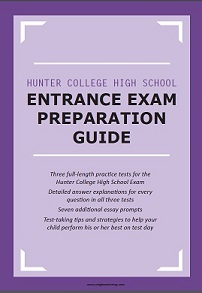SAT Accommodations for Dyslexia
/Standardized tests can be rough for students with learning disabilities, and the thought of rushing through reading comprehension questions based on long passages can be stressful for anyone with dyslexia. For teens who apply to colleges that require SAT scores, there are testing accommodations available for students who qualify, and these accommodations can make the test-taking process a little bit easier. Additionally, teens may want to apply to a few test-optional schools, such as the ones listed on Fairtest.org, so they don’t feel as pressured about their exam scores.
How To Get SAT Accommodations? | What Accommodations Are Possible for a Student with Dyslexia?
The accommodations application process can take nearly two months, so students who plan to take the SAT or the SAT Subject Tests will need to think ahead and submit their forms accordingly. The most important part of the accommodations application is evidence of a learning disability and signs of accommodations in place at a student’s school. For example, a student might get time and a half on history exams so he or she has more time to read questions, or maybe they might get breaks during math exams before moving on to new questions. Documentation of these accommodations at a student’s school combined with professional evaluations showing a diagnosis of dyslexia will be necessary to get modified SAT testing. Thankfully, most college counselors will begin this process for students and guide them through the different requirements, so it’s key for teens to stay in contact with their guidance counselors throughout junior and senior year. The criteria for SAT accommodations and a helpful timeline for the application process are great resources.
Why Would Students with Dyslexia Choose the SAT?
Since the SAT has a mandatory essay section (until it becomes optional in 2016) and generally requires students to have a stronger vocabulary than the ACT, some students might not even consider taking the SAT. However, the ACT has an additional science section, which actually doesn’t have much to do with science and is more like another reading comprehension section. The science section gives students short chunks of information, sometimes in the form of paragraphs, tables, charts, or graphs, and then asks students to respond to questions about those segments. Taking one more section that requires careful reading can make teens lean toward the SAT, which only has reading, math, and writing sections. Students who will be take their exam in 2016 might want to think about sitting for the SAT without the essay, but students who have to make their choice earlier should decide whether they’d like an extra reading section or an essay.
How Should Students with Dyslexia Prepare for the SAT?
As we mentioned before, the SAT requires students to have a more comprehensive vocabulary than the ACT, although the College Board will change this when the new SAT comes out in 2016. This is good news for anyone who hates memorizing vocabulary words, although students this year and next will need to keep those skills sharp for the exam. Several of our test prep suggestions can be found in our SAT prep article.
The earlier students can start studying, the better! More time to practice means more time for students to find reading habits that work for them, including ways to take quick notes or mark up test pages so they know where to find key information. These little tricks will help save time when it’s test day, and that will help students do their best work. A helpful page of additional information about the SAT and students with dyslexia (and plenty of suggestions for the accommodations process) can be found here.
For teens with dyslexia, various test preparation options are available, including group classes and self-study. Private tutoring can offer a helpful way to improve preparedness for the SAT for a student with learning challenges. One-on-one attention with a private tutor means that a student can work with a qualified professional to practice test-taking skills with specific accommodations. Individual tutoring can also help fill a student's knowledge gaps.
If you would like to discuss further how private tutoring may help your child’s SAT test prep experience, please call Origins Tutoring for a free consultation at (917) 287-7927.

